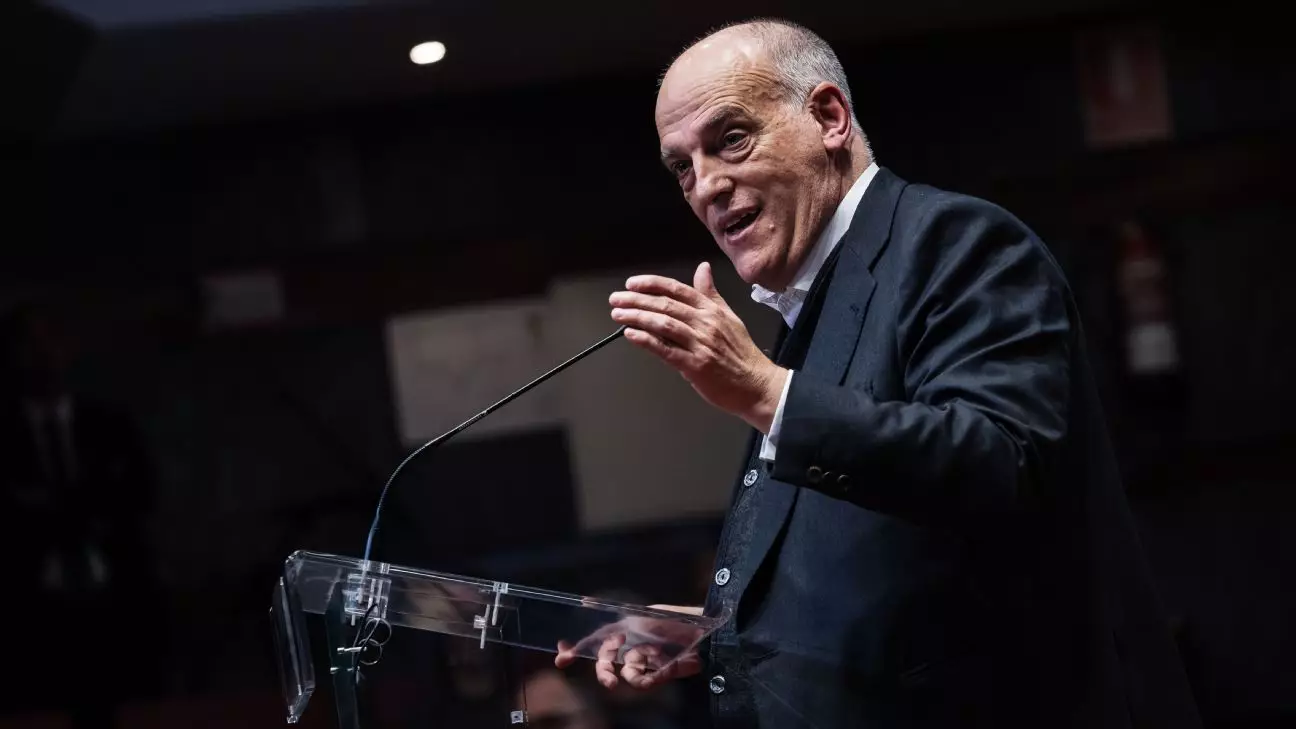The recent discourse surrounding FIFA’s plans for the 2025 Club World Cup has ignited a firestorm of criticism, particularly from LaLiga president Javier Tebas. He argues that the newly proposed competition, featuring 24 teams, lacks support from both leagues and players, thereby calling into question its viability. Scheduled to take place in the United States from June 15 to July 13, 2025, the tournament’s ambitious agenda coincides with an already congested football calendar, raising alarms about its potential impact on players and domestic leagues.
Tebas’s assertions reach beyond mere objections; they include accusations that FIFA has failed to secure the anticipated audiovisual rights and sponsorships for the tournament. Tebas’s comments at the Forum of the European Union of Clubs in Brussels have made it clear: “Withdraw that Club World Cup now.” His forceful plea reflects the sentiment of multiple stakeholders in the football community, all of whom fear that the new competition may exacerbate an existing schedule that is already stretched to its limits.
The implications of this expanded tournament are not limited to logistical challenges for the clubs but extend to the well-being of players. The grueling nature of contemporary football schedules was underscored by Manchester City midfielder Rodri, who lamented the burden of more games, fearing that players may consider striking over the escalating demands placed on them. His experiences of playing 63 matches in just one season exemplify the unsustainable workload many footballers face.
Furthermore, the global players’ union, FIFPRO, alongside the European Leagues, is pushing back against FIFA’s plans, addressing what they perceive as overreach by the governing body. They contend that FIFA, as both organizer and regulator, is abusing its power, which could have cascading effects on player welfare.
At the heart of Tebas’s criticism lies a financial conundrum. He estimates that FIFA may need to divert upwards of €1.5 billion from its funds to cover commitments made to clubs, further straining resources allegedly earmarked for developmental purposes. This raises significant questions about accountability and transparency within FIFA, specifically around how it allocates resources and responds to the needs of its constituents.
The prospect of using FIFA’s financial reserves not only jeopardizes funding for smaller federations but also pits the interests of football governance against the well-being of players and clubs. This schism urges a reevaluation of priorities within global football leadership.
As the dust settles on this dispute, the conversation surrounding the Club World Cup should take a more collaborative tone. Engaging in dialogue with leagues, clubs, and player unions may lead to solutions that satisfy various stakeholders while ensuring the sustainability of the sport. A reevaluation of the presented plans could pave the way for a more organized and less congested football calendar, protecting the interests of players and maintaining competitive integrity.
Ultimately, the growing resistance against the 2025 FIFA Club World Cup illustrates a critical inflection point for global football. It is an urgent reminder that the voices of players, leagues, and governance bodies must harmonize to foster a healthier football ecosystem, not just for the elite but for the integrity of the sport as a whole.

